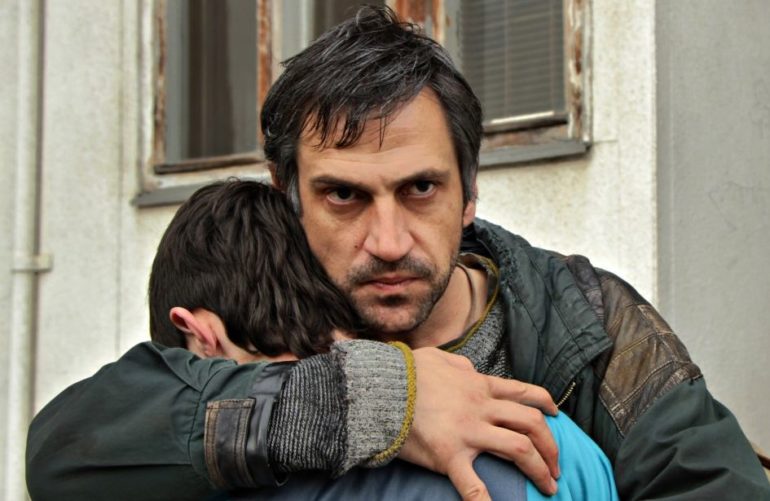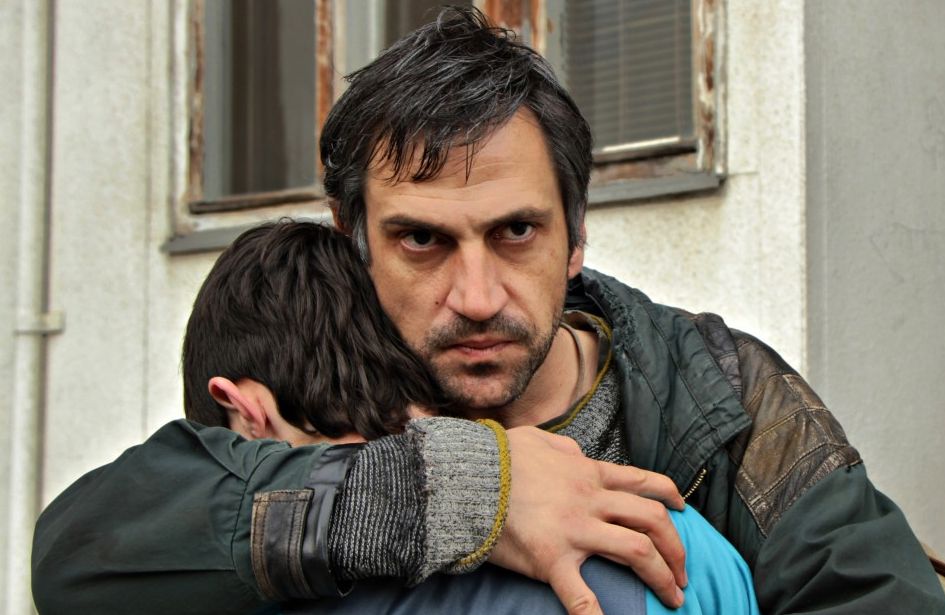A woman turns up to a factory with her two children. She is there on behalf of her husband, who was laid off two years ago and is still owed several months salary plus severance pay. She lights herself on fire. When her husband Nikola (Goran Bogdan) is summoned to the police office, he is told that his wife is in hospital while his children have been placed into special care.
He asks if he can see them and gets a resounding no. This is the first of many scenes with Nikola being stonewalled by authorities, who are positively Kafkaesque in their reasoning. Director Srdan Golubovic keeps the pace purposefully slow, draining his characters of any fast movements. Nikola is told to come back tomorrow, but upon his return is told that his children will be placed into foster care until he can prove he is a good father.
He has to get a job, but there are no jobs in Serbia as the system is purposefully rigged. The head of the local office has the ultimate say about whether or not he will see his children. Foster parents are paid to take care of the children, with the head himself given a smooth 30% cut. With nowhere else to turn, Nikola writes an appeal to the Minister in Belgrade, which he is determined to deliver in person. The only problem: Belgrade is 300km away. Unable to afford the bus fare, he makes the perilous journey on foot.
Long scenes follow Nikola him as he walks everywhere on foot, down the sides of motorways and through quaint villages. It should get dull after a while, but as we believe in Nikola’s plight, the story puts us under a kind of hypnosis. Credit must go to Bogdan, who underacts throughout, his blank face and dogged determination giving his struggle a Bresson-like feel. The directing is measured, Golubovic showing a high level of confidence in his camera placement and pace.
The road trip (or should I say walk trip) genre is used here to comment upon the nature of fatherhood as well as the state of the Serbian nation, where nothing seems to work as it should, but no one seems bothered enough to do anything about it. An American (or Ken Loach) version of this movie might’ve been tempted to give him a big speech detailing why he’s a good father, but Otac purposefully shines away from any unnecessary histrionics. This makes the movie a lot stronger because, after all, he doesn’t have to be a great person in order to be worthy of fatherhood. He just needs to care.
There is a sly pitch black comedy that runs throughout the film, seen in the unrelenting absurdities of bureaucracy as well as the puffed-up sermonising from those in power. It brings to mind equally depressing Eastern European cinema like Romania’s The Death of Mr Lacerascu or Russia’s The Major, methodically charting how an uncaring society only out to line its own pockets can have devastating effects upon the rest of the nation.
There are no solutions here either, but it isn’t exactly despairing either, with a delightfully droll sequence at the end that seems to recap the movie’s themes in miniature, holding out hope through the sheer portrayal of determination. It reminds us that change is not something that happens automatically, but is built upon the sweat of those who refuse to give in to the status quo.
Check out the rest of our Berlinale reviews here.
Some of the coverage you find on Cultured Vultures contains affiliate links, which provide us with small commissions based on purchases made from visiting our site.


